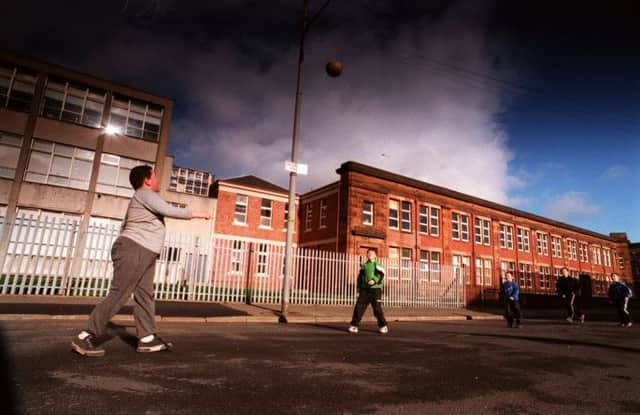Don’t leave your children unprotected


IT HAS been said that we are a nation of over-protective parents, forbidding our children to play unsupervised or to walk short distances to school. Limiting risk taking and controlling activity are undoubtedly traits of the modern parent, and can sometimes be subject to harsh criticism.
However, in defence of the modern parent, it is usually the case that their over-protective instincts are simply a sign of their wish to safeguard their offspring from serious harm, from failure and disappointment, from hurt and pain, or from upset and rejection.
Advertisement
Hide AdAdvertisement
Hide AdIt therefore seems strange that these same parents do not always extend the same protection to cover a situation when they are no longer around to offer such watchfulness.
It is still the case that just over half of UK adults have not written a will, with that percentage rising to 68 per cent in the 35-54-year-old group, leaving them and their family vulnerable should they die when their children still require that same care and protection.
The truth is that most people do not like to think of a situation in which they will no longer be around to bring up their children and to influence their care.
However, the sad fact is that some parents do die prematurely, whether through illness or accident, and have not made appropriate arrangements for their children’s welfare in such unfortunate circumstances.
Whilst it is understandable that most parents would wish their children to be financially provided for if they were themselves to die prematurely, as important as financial security is the appointment of suitable guardians to protect the interests of their children, and to take over their care.
It is therefore important that parents make provision in their wills for the appointment of appropriate guardians for their children until they reach adulthood and are able to look after themselves.
Undoubtedly the choice of a guardian is an important one.
A guardian is responsible for the day to day care of the children, and will be responsible for deciding on how the children are brought up, looked after and educated, so it is essential that parents give careful consideration to such an appointment.
One of the most important considerations is whether a proposed guardian is willing to take on such a role. It is therefore advisable that parents check with any proposed guardians as to whether they are willing to accept such an appointment, and fully understand the responsibilities connected with this role.
Advertisement
Hide AdAdvertisement
Hide AdIt is also sensible to appoint guardians of similar age or younger, as there is always a fear that any guardian dies or becomes incapable of fulfilling their role through illness and old age. For this reason it is also sensible to appoint at least two guardians.
In choosing suitable guardians the following factors should also be addressed: n Do they love your children, and have a good relationship with them? n Do they have a suitable environment in which your children will grow up? n Are they responsible, and capable of raising your children? n Are they of appropriate age? n Are they fit and healthy? n Would the children still have access to their relatives? n Do they have appropriate religious and moral beliefs? n Are they in a stable relationship? n Are they financially sound?
Normally, a guardian will also be appointed in the will to be a Trustee for the children under their care, and to be responsible for taking care of the children’s finances until they reach adulthood. It is also usual to appoint another independent Trustee, such as a solicitor or an accountant, to ensure that there are no conflicts of interest in dealing with any funding for the children under their charge.
Other related matters which can be addressed in a well-drafted will are whether funds should be held in trust beyond a certain age and whether children should continue to stay in the family home or whether it should be sold to fund their ongoing care.
If parents fail to appoint guardians in their wills, or do not make wills at all, and there are no natural successors to take care of the children, or there are disputes amongst family members as to who these successors should be, the courts would appoint guardians instead – guardians who might not be who the parents would have chosen if they had had their say. • Dianne Paterson is a partner in Russel + Aitken LLP www.russelaitken.com
SEE ALSO